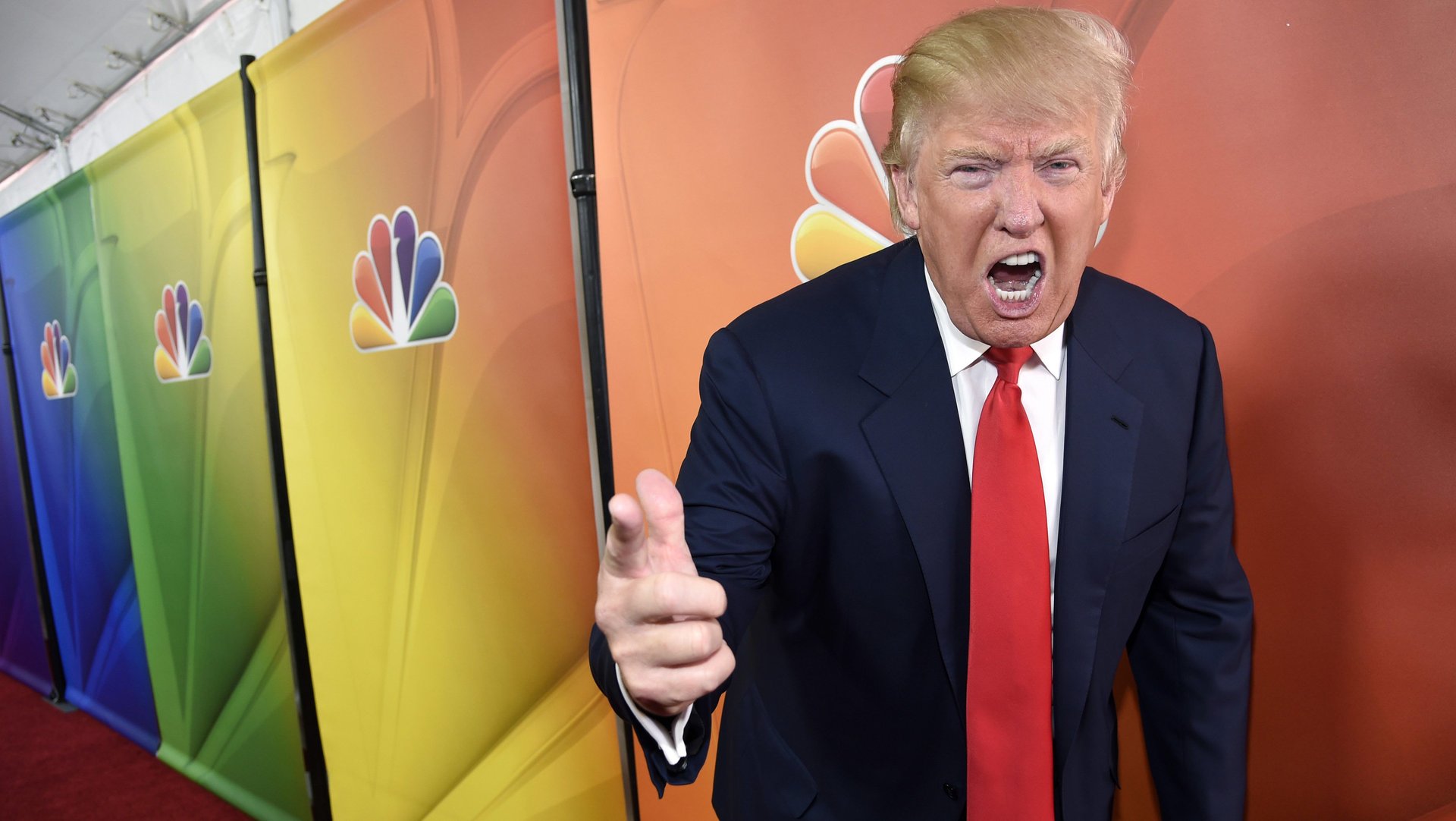Five reality TV show strategies Donald Trump has used throughout his campaign
Donald Trump is a political candidate unlike any other. But while his tactics are novel within the world of politics, June Deery, media studies professor at Rensselaer Polytechnic Institute, believes they should be very familiar to those who watch reality TV.


Donald Trump is a political candidate unlike any other. But while his tactics are novel within the world of politics, June Deery, media studies professor at Rensselaer Polytechnic Institute, believes they should be very familiar to those who watch reality TV.
1. He gets attention
“Trump’s learned that to get attention—which is everything in politics—it’s best to be the most outrageous person in the room,” Deery says. “[In reality TV], the milder-mannered people don’t tend to get renewal contracts. Extroverted pushy personalities come to the fore.”
2. He isn’t polished
Reality TV and Trump’s campaign both of emphasize a type of ordinariness and lack professional quality. “Reality TV is supposedly about amateurs, not professional actors. Being an amateur has a lot of validation and I think you see that in contemporary American politics,” says Deery.
Trump’s pride in being an outsider, rather than someone with both professional political experience, follows this line of thinking.
3. He promotes unfiltered feelings
In reality TV, Deery says, characters are encouraged to voice strong opinions and to justify their beliefs by explaining, “This is how I feel.”
“You don’t have to back it up with anything,” she says. “That kind of self-validated authenticity is enough. People say they’re being authentic or unfiltered.”
4. He follows a tried-and-true storyline
Trump doesn’t simply share characteristics with the successful personas of reality TV. He’s also borrowed narrative tactics from the genre. One of the major storytelling elements of reality TV is the big reveal at the end of the finale, says Deery. “Trump’s created one. He’s saying, ‘I’m going to keep you in suspense and I’ll let you know if I accept the election result.” He’s creating suspense for the final scene. He knows this stuff.”
5. He encourages a subjective interpretation of the truth
Bryan Gibson, a psychology professor at Central Michigan University, has conducted studies showing that watching reality TV leads viewers to mimic the behavior shown in the program. Reality TV often features aggressive behavior, and he’s found that viewers become more aggressive after watching reality programs. A second study, due to be published in Psychology of Popular Media Culture, finds that the same applies to narcissistic behavior. “When we’re exposed to different concepts and ideas we often integrate them into our own reality without knowing it,” Gibson says.
This suggests that reality TV allows audiences to get more accustomed to aggressive and narcissistic actions. Though the theory is currently unproven, he says it “makes perfect sense” that “if we view TV shows in which these nasty conflicts are commonplace, it will likely change how frequently those things occur in real life and normalize them.” There’s speculation, he adds, that the fact that reality TV is presented as non-fictional could make its effects especially powerful.
The most significant way in which reality TV has prepared audiences for Trump, says Deery, is that it destabilizes notions of fact, truth, and evidence. This election, Trump has repeatedly contradicted himself and denied the veracity of fact checkers, even when presented with clear evidence.
“As an entertainment form, it’s never quite clear what might be real or authentic or staged. Part of the game is to watch the show and discuss with friends the extent to which something may or may not be ‘real’ or ‘true,’”says Deery. “It’s radical subjectivism: You decide what’s real, what’s a fact, what’s not. I find that the biggest legacy of all here. I think that will go beyond this election—the notion that what’s real, true, or fact is debatable.”